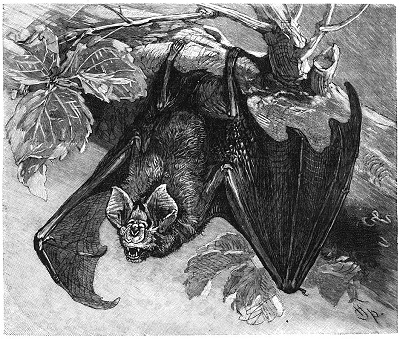Podcast: Play in new window

BOB HIRSHON (host):
Age-defying bats. I’m Bob Hirshon and this is Science Update.
Mice and rats succumb to cancer and other diseases of old age when they’re two or three years old. But many species of bats live to be 20 or 30 and never get cancer. University College Dublin biologist Nicole Foley thinks it has something to do with their telomeres: protective structures, also called aglets, on the ends of chromosomes.
NICOLE FOLEY (University College Dublin):
As we age, these aglets get shorter and shorter and shorter; they get so short that the cell – the chromosomes – then become frayed. And the idea is if they get so short, your cell becomes old, it stops functioning.
HIRSHON:
In the journal Science Advances, she and her colleagues report discovering two genes that seem to allow the bats to protect their telomeres. The work could lead to new therapies to prevent cancer and other diseases that become more prevalent with age. I’m Bob Hirshon, for AAAS, the science society.
Story by Bob Hirshon
